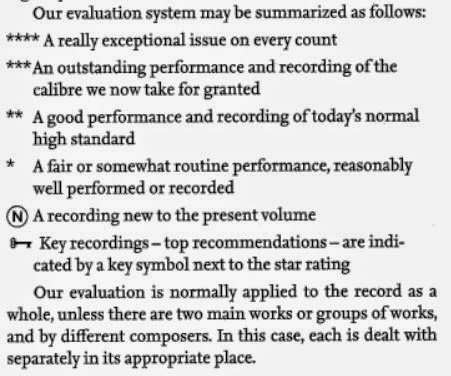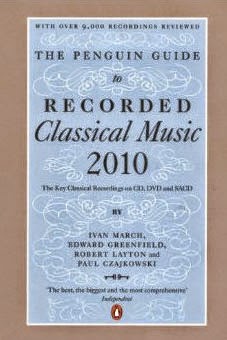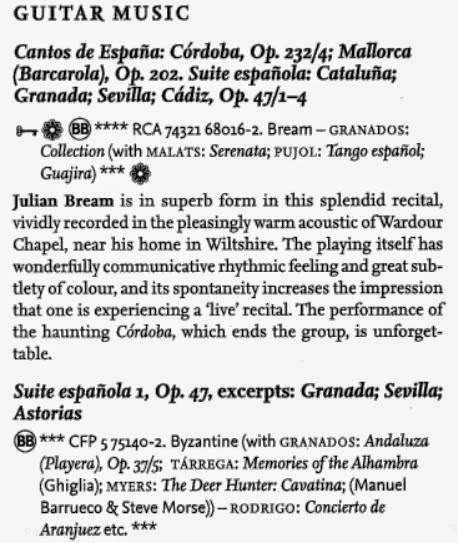I was recently recalling one of my trips to Tower Records. For those who remember, Tower Records was a massive music store. The flagship stores in major cities usually spanned several floors with one floor dedicated to different musical genres. For many like me, Tower Records was simply the public library of music. It was a sacred collection of recorded works ancient and modern in any listening format you preferred.
I remember one specific occasion when Stevie Wonder and his entourage entered Tower Records late in the evening behind me. They closed the entire store behind me so that Stevie and his company had free reign of the store to explore and sample whatever they wanted.
Aside from the assembled collections and regular celebrity visits, there is another element that I now sorely miss about Tower Records: The Penguin Guide to Recorded Classical Music. Normally, you had to know where to look, but it was unmistakable. This paperback Bible of classical music was usually well worn; and, like a good Bible, it was frequently referenced and used.
If you wanted to explore a particular composer or work, then you’d reference the Penguin Guide first. The Penguin Guide helped me on many occasions, from Bach’s Cello Suites to Holst’s The Planets. The Guide would tell you all the available recordings, who they were recorded by, and gave you an exhaustive rating.
 |
| Penguin’s rating system was straightforward and gave you an easy way to see how a performance rated.
|
Ratings were done in the form of stars. One star meant that the work was a fair or somewhat routine performance. It was reasonably well performed or recorded. You respectfully shied away from those. Two stars assured A good performance and recording of today’s normal high standard. Three stars indicated an outstanding performance and recording of the calibre we now take for granted. Those performances receiving four stars were considered very exceptional issues on every count. Those rare works that exceeded the four stars were put into a category all their own with a rosette. A rosette was a compliment that placed the recording in a very special class.
Other classifications included a star in brackets, which meant that there was some qualification to the performance or recording. A bracket around all three stars usually denoted an outstanding performance in monaural sound.
Of course, those days are long gone. Tower Records is a faded memory as are many venerable music and record stores. The Penguin Guide to Recorded Classical Music hasn’t been updated since 2010. I daresay that we’ll see another updated edition published ever again. Even its rival, the Gramophone Classical Music Guide hasn’t seen an update since 2012.

















+1 for Tower Piccadilly in the shadow of Eros, RIP. So many serendipitous discoveries made between 11 & midnight, when one could even park on a single yellow within walking distance.
Whilst I monthly devour the pages of Hi-Fi News & Record Review, I long for a successor to the Penguin or Grammaphone. A compendium would arguably be more useful than ever, in helping to decide whether to invest in high resolution downloads over vinyl or CD previous releases. A Christmas present I'd love to give and receive !
I guess I never 'got' the whole record shop thing. I have no fond memories of hanging out in record shops for fun, nor of enjoying flipping through endless LPs in search of a particular album. My musical tastes and fashion sense were not respectable enough for me to engage in meaningful conversation with the trendy people behind the counter.
These days, the idea of consulting a special book for other people's opinions on recordings, then trying to find said recording and probably having to order it in to be collected in two weeks' time – and then probably hating it – fills me with torpor!
Comments are closed.